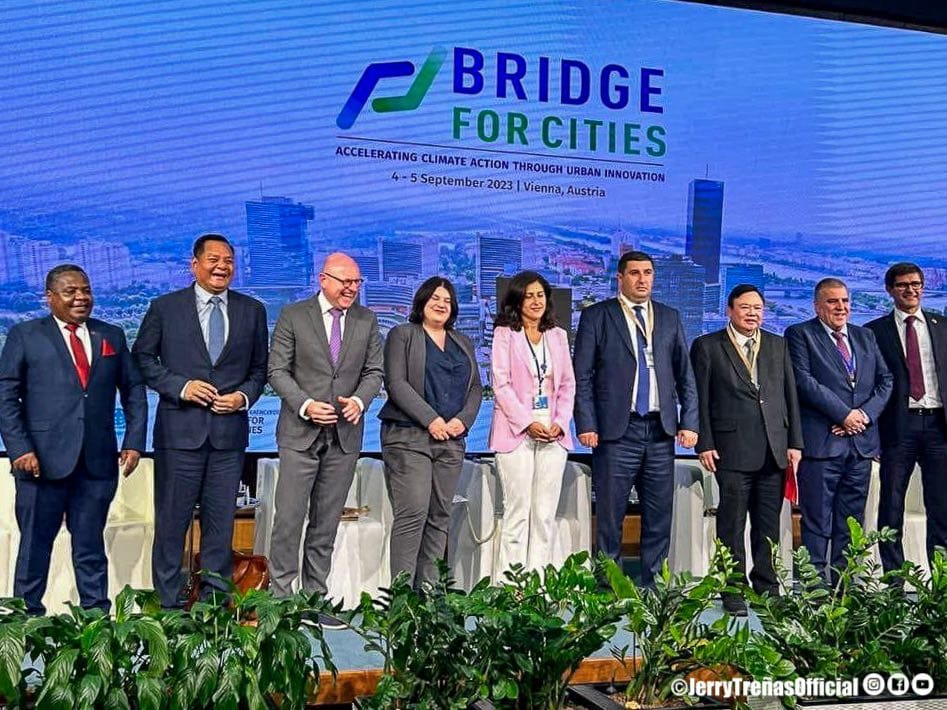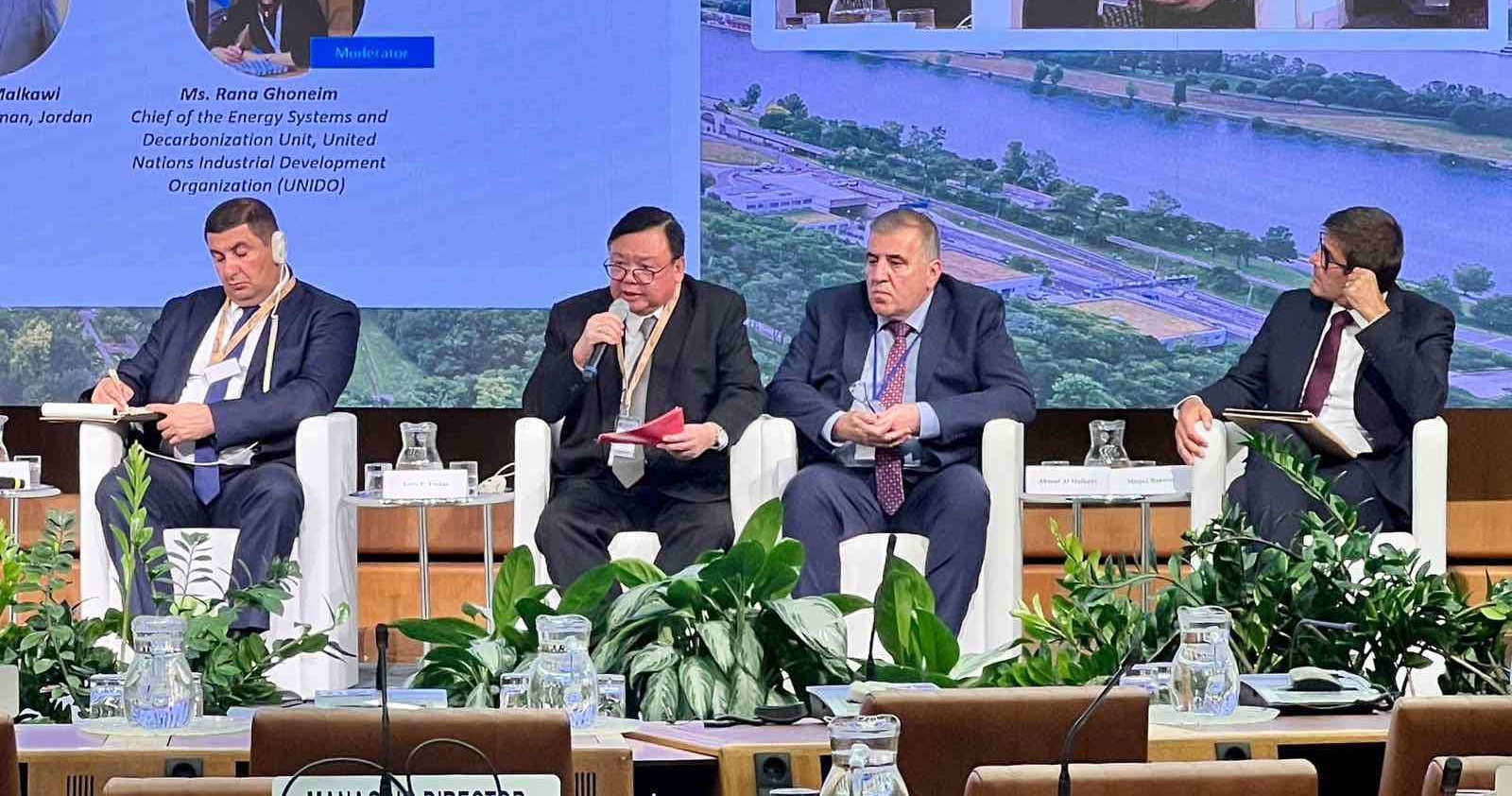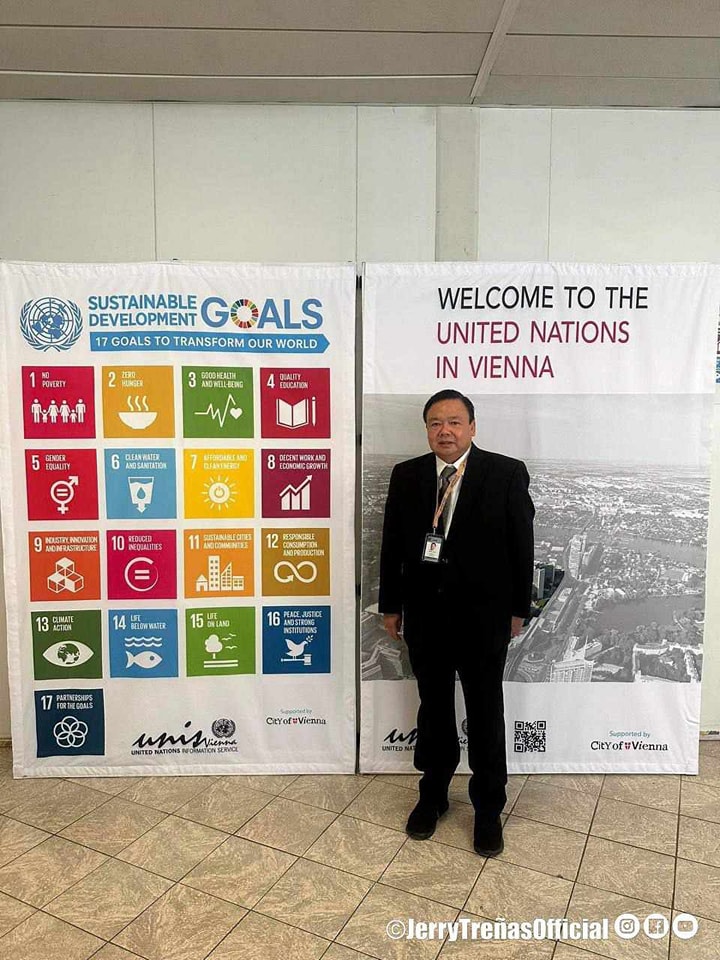Treñas shares Iloilo City green initiatives in UN Vienna gab

Mayor Jerry Trenas shares Iloilo City best practices in UNIDO conference in Vienna.
Mayor Jerry Treñas showcased Iloilo City’s best practices during the United Nations Industrial Development Organization (UNIDO) Bridge for Cities Event in Vienna Austria last September 4.
Treñas represented the Philippines in the forum, wherein he highlighted the city’s “green projects” and other climate initiatives during the Mayors Dialogue 2 on “Advancing Innovation and Partnerships for a Net Zero Transport”.
“I had the privilege to showcase the innovative programs and initiatives that make our city shine. It’s incredible to see how cities worldwide are coming together to drive progress and sustainability,” said Treñas.
Iloilo City is embarking on a “green lane” to reduce CO2 emission, connecting the plazas, esplanades and tree parks via a network of bicycle lanes. The protected bike lane, called the Iloilo City Bike Network is a safe, scenic and eco-friendly bike path, and currently stretching 11 kilometers.

The City Government embarked on a bike lane linkage project to connect three major bike lane networks – Sen. Benigno Aquino Jr. Avenue, the University Loop, and the 12-kilometer bikeable section of Iloilo River Esplanade, plazas and parks across the city, with the aim to have a bikeable and walkable city, thus reducing carbon footprint.
The 3-hectare Iloilo Tree Park Development Project is in the works in Brgy. Lanit, Jaro which is part of the interconnected network of greening projects. It can sequester up to 33 tons of CO2 per year. The 35.07 hectares of mangroves forest in Iloilo City sequesters 29.4 metrics tons of CO2 every year.
The Local Transport Route Plan is not only designed to streamline the routes, but to reduce CO2 emissions. Currently, there are 10 electric vehicles plying 1 route (Tagbak-City Proper via Coastal); and plan to establish green routes along the business triangle as soon as there are available units which will connect all 4 big developers in the city.
As part of the national government’s jeepney modernization program, around 500 modern jeepneys now in the city have engines that have less CO2 emissions, using Engine Euro 4 and up.
United Nations Development Program (UNDP) also lends technical support for low carbon transport project through Calumpang Iloilo Transport Services Cooperative (CITSCO).

Recently, Iloilo City was cited as Most Progressive Low Carbon Transport City, awarded also with Best Action Plan to Support the Pilot City REAP (Re-entry Action Planning), Best Social Media Marketing Plan, and Highest Posttest Scores.
The awards were given during the culminating program of the Capacity Building of National Government Agencies and Local Government Units on Low Carbon Transport Project Aug. 31.
Iloilo City bested other low carbon transport pilot cities, namely Baguio, Pasig and Sta Rosa, Laguna.
Moreover, Iloilo City has been selected as a pilot site of the Climate Resilience Cities Project (CRC) of United States Agency for International Development (USAID) and Korean International Cooperation Agency (KOICA).
The metropolis is one of six cities of USAID-CRC connected by KOICA in a joint effort to assist cities in achieving climate resiliency, transforming into Philippine Climate Resilient Cities (PCRC) project. They signed on Aug. 30 the five-year PCRC to improve climate resilience by enhancing their capacity to understand and use climate adaptation technology. The move towards zero CO2 emissions a major step in achieving the goals of PCRC.
The city will soon be embarking on e-vehicle (EV) bus rapid transit (BRT) by First Balfour, part of the Lopez Group. EV-BRT is a low-carbon urban transport system which is seen to reduce traffic congestion and benefit the environment while contributing to the development of the local economy.
Promoting environment-friendly transport system is one of commitments in line with the roadmap called W.H.E.E.L.S. (Welfare, Health and Sanitation, Education, Environmental Management, Livelihood, and Sustainability) for Inclusive Development. (Via Iloilo City PIO)

